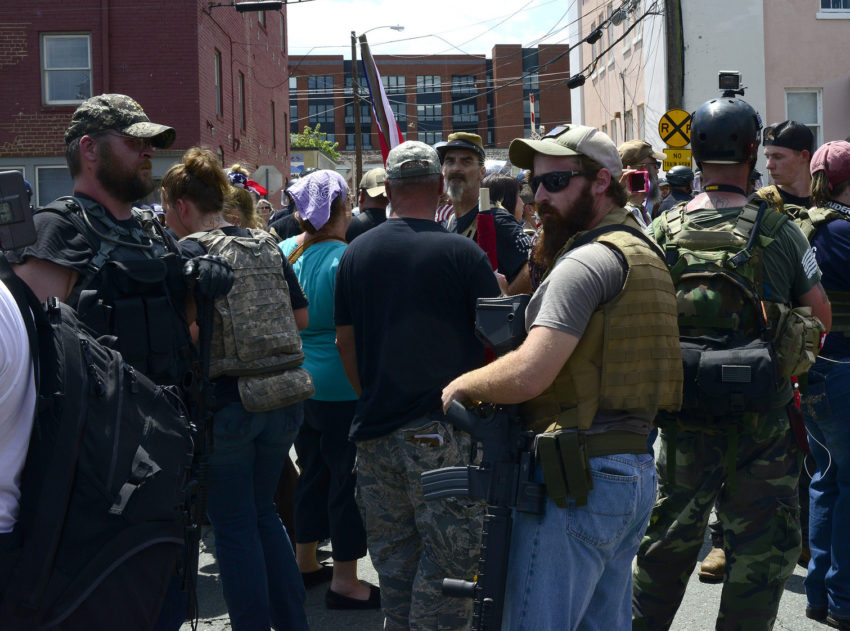ACLU Shifts Position on Defending Armed Demonstrators
Jessica Corbett / Common Dreams
By Jessica Corbett / Common Dreams
The American Civil Liberties Union (ACLU) will no longer defend groups that insist on marching with firearms, following violent gatherings of white supremacists in Charlottesville, Virginia last weekend.
“The events of Charlottesville require any judge, any police chief, and any legal group to look at the facts of any white-supremacy protests with a much finer comb,” Anthony Romero, the ACLU’s long-serving executive director, told the Wall Street Journal Thursday evening.
“If a protest group insists, ‘No, we want to be able to carry loaded firearms,’ well, we don’t have to represent them. They can find someone else,” he also said, noting that the new policy aligns with a position adopted by the ACLU’s national board in 2015 to support “reasonable” firearm regulations.
After one counter-protester was killed and dozens more were injured in the demonstrations on Saturday, the ACLU was criticized for defending in federal court the white supremacists’ constitutional rights.
Citing safety concerns, the city had tried to move Saturday’s “United the Right” rally to a park a mile away from Charlottesville’s Emancipation Park, where the white supremacists planned to protest the city’s decision to remove a statue of Confederate General Robert E. Lee.
The ACLU and the Rutherford Institute successfully argued that Charlottesville was “discriminating against protesters who espouse highly controversial views and blocking their access to a historic downtown park while allowing counterdemonstrators access to parks in the vicinity,” and the rally was allowed to continue as planned (until a state of emergency was declared on Saturday.)
Although many of the white supremacist protesters openly carried firearms—which is legal in Virginia—the death and injuries were not the result of the guns. However, as the Journal reported, “Romero explained that the displays of force can suppress speech through intimidation.”
It appears these displays of force—and the resulting public condemnation—triggered Romero’s group to reconsider its policy.
When the ACLU defended the Ku Klux Klan’s right to protest in a Chicago neighborhood of Holocaust survivors in the 1970s, the legal group lost 30,000 members. Since Donald Trump was elected president, the ACLU’s membership has nearly quadrupled, and they have received $83 million in online donations, according to a spokesperson.
Despite the policy shift, Romero maintained in his interview with the Journal that the ACLU will still consider requests for legal assistance from white supremacists—a practice that is not new for the group.
“The ACLU has been representing the free speech rights of neo-Nazis and other white supremacist groups (along with communists, Muslims, war protesters, and the full spectrum of marginalized minorities and leftists) for many decades,” journalist and constitutional lawyer Glenn Greenwald noted in a recent column for The Intercept.
Greenwald responded to what he called “misguided attacks on the ACLU” by making the case that civil liberties advocates must “defend the rights of those with views we hate in order to strengthen our defense of the rights of those who are most marginalized and vulnerable in society.”




